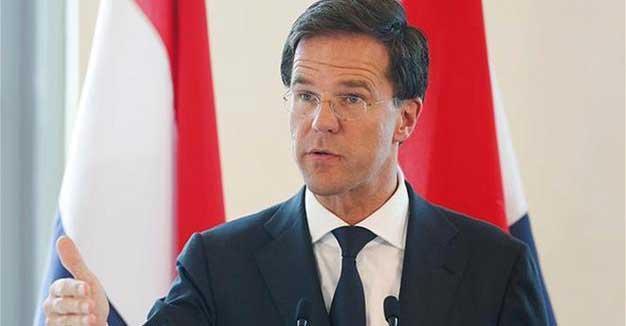The Netherlands joins Germany in row over Turkish meetings
THE HAGUE / VIENNA
 With Turkey embroiled in a row with Germany over the latter’s decision to ban Turkish ministers from holding events in two German cities, the Netherlands has irked Turkish officials by taking a similar stance.
With Turkey embroiled in a row with Germany over the latter’s decision to ban Turkish ministers from holding events in two German cities, the Netherlands has irked Turkish officials by taking a similar stance.The Dutch government said on March 3 it opposed plans by Turkish authorities to hold a referendum campaign rally in Rotterdam, saying it would inform Ankara of its opposition to the “undesirable” move.
Earlier, the leader of an association of Dutch Turks said Foreign Minister Mevlüt Çavuşoğlu was planning to attend the March 11 rally, hoping to persuade the Netherlands’ hundreds of thousands of dual citizens to vote “yes” in the April 16 constitutional referendum on whether to shift Turkey’s current parliamentary system to an executive presidency.
Dutch Prime Minister Mark Rutte issued a statement via Facebook, saying the Netherlands is not a place for other countries’ election rallies.
“We will not cooperate with this. We find this undesirable. We believe that the Dutch public space is not the place for political campaigns in other countries,” Rutte said.
Two German towns this week banned similar planned events with Turkish officials.
On March 2, the municipality of Gaggenau in southwest Germany revoked its permission for Justice Minister Bekir Bozdağ’s meeting, citing concerns about overcrowding. This prompted Bozdağ to cancel his planned visit to Germany altogether.
Economy Minister Nihat Zeybekçi’s planned address on March 5 to the Turkish community in the western city of Cologne was also cancelled by the local authorities over security concerns.
Culture and Tourism Minister Nabi Avcı criticized the stance of Germany and the Netherlands as “very dangerous.”
“These are dangerous developments because in the countries in the West, including Germany and the Netherlands, xenophobia, prejudice and Islamophobia are the discourses of some small Nazi remnant parties. This has now spread to mainstream political institutions and local administrators, pointing to a dangerous course in terms of their own political future and mental health,” Avcı told reporters on March 4.
Austrian Chancellor Christian Kern also stated that Turkish politicians should be banned from political campaigning across the European Union.
“A collective EU response to prevent such campaign events would make sense so that individual countries like Germany don’t end up being pressured by Turkey,” Kern told German newspaper Welt am Sonntag on March 5.
Kern also suggested that long-running EU accession negotiations with Turkey should be abandoned in response to President Recep Tayyip Erdoğan’s “trampling on human rights and basic democratic rights.”
“We can’t continue negotiating about membership with a country that has been distancing itself from democratic norms and rule-of-law principles for years,” he said.
“Introducing a presidential system will further weaken the rule of law in Turkey, reduce the division of powers and contradict the values of the EU,” he added.
“Turkey has moved further and further away from Europe in the past few years. Human rights and democratic values are being trampled on. Press freedom is a foreign word,” Kern said.
He also criticized Ankara’s arrest of German-Turkish journalist Deniz Yücel, a correspondent for Die Welt newspaper, and called for Yücel’s immediate release.
At the same time, Kern said Turkey remained an “important partner in issues of security, migration and economic cooperation,” noting that Ankara had lived up to its obligations under the migrant deal struck with the EU.
“The German-Turkish friendship is deeper than the diplomatic tensions they are going through now,” he added.
Austria’s move was criticized by Turkish EU Minister Ömer Çelik, who said it was “a new level in the violation of democracy and basic freedoms.”
“When they want to spread their individual opposition to Turkey, to all of Europe, they do not hesitate to trample down the most basic principles,” Çelik said on his Twitter account on March 5, adding that it was “wrong for the Austrian government to use the same language used by racist movements in Europe.”
“It is very dangerous that attacks on basic principles come from governments, like the one in Austria. The EU should take precautions against these governments,” he said.
















